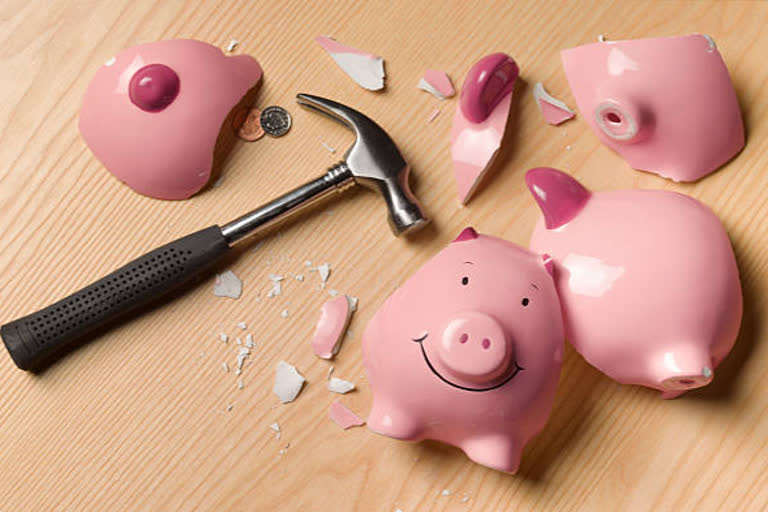Sydney (Australia): It's late November, which means the holiday sales period has well and truly begun. If you haven't already seen your spending go up, the possibility is looming. And you probably have some concerns about spending your money wisely. Furthermore, shopping can be a harrowing experience, and our attitudes towards money are tied up in all kinds of feelings. Based on psychology, here are three tips to improve the way you spend your hard-earned cash this holiday season.
Before the purchase patience is your friend: One of the amazing features of the human mind is that we can mentally time travel: we can imagine what the future is going to feel like. Scientists call this affective forecasting. Thinking about a future trip imagining the warm sun, the sand between your toes, finding yourself smiling is an example of such mental time travel.
However, it turns out we're not very good at affective forecasting. We get wrong not only the emotions we will experience, but also their intensity and duration. Lottery winners are a classic example contrary to expectations, many are not happy, or not happy for long. More importantly, you can derive happiness from just anticipating future experiences. For example, one study measured the happiness of 974 people going on a trip compared with 556 people not going on a trip. As you might expect, the vacationers were relatively happier but only before the trip. So, how can we take advantage of our capacity to mentally time travel?
Tip #1: Pay now, consume later. These days, fuelled by the rise of buy now, pay later options, we get to consume what we want immediately. However, this instant gratification deprives us of a key source of happiness: anticipation. A better strategy is to commit to buy something and then wait a little before actually consuming it.
At the point of purchase notice you're paying: An inevitability of every purchase is spending money. This represents a cost, both in terms of the monetary value but also the opportunity to buy other things. Costs are a form of loss, and we don't like losing things. For that reason, it psychologically hurts to spend money. Scientists call this the pain of paying.
According to one theory of shopping, we decide to buy after making a mental calculation: is the anticipated pleasure of consuming higher than the anticipated pain of buying? This calculus is even represented in the brain. For example, one study looking at people's brains with fMRI while they purchased food found neural activity in areas linked to higher-order, affective pain processing, which correlated with how high the price was.
How did you pay for your last meal? Did you have to dig into your wallet or purse trying to extract the appropriate combination of notes and coins? Maybe you simply pulled out a plastic card and swiped it on the reader? Or perhaps you absentmindedly touched your smartphone to the machine. It turns out your method of payment changes how much pain you feel.
Also read: Low to moderate stress is beneficial for health: Research
In one study, researchers asked some university employees if they would like to buy a mug at a discounted price. Half were only allowed to pay in cash, whereas the other half had to use a debit or credit card. Those who paid in cash self-reported more pain of paying. So, how can you use this to your advantage?
Tip #2: Ramp up the pain. If you're worried about overspending this holiday period, ramp up the pain of paying. You can do this by using cash or receiving a notification each time money leaves your account.
After the purchase stop chasing rainbows: A fundamental feature of human beings is that we are adaptive we easily get used to the new normal. This applies to our purchases, too. Scientists call it hedonic adaptation: over time, consumption of the same thing brings decreasing happiness. Remember the day you got your smartphone? You may have felt joy as you caressed the smooth aluminum back and watched light glint off the unblemished glass. Now look at your phone. What happened to the joy?
It's normal to experience hedonic adaptation. However, one problem is that we don't anticipate it. Remember affective forecasting? Since satisfaction is a function of expectations relative to performance, when we fail to adjust our expectations in light of the inevitable hedonic adaptation, we end up dissatisfied.
The second problem with hedonic adaptation is that the obvious solution appears to be buying something new. Maybe you need a new smartphone to replace your slightly scratched-up old one? If this is your thinking, you've just hopped onto the hedonic treadmill. Now the only way to maintain your happiness is to spend more and more money to get better and better versions of everything. So, how can you get off this treadmill?
Tip #3: Buy experiences, not things. It turns out people end up happier when they buy experiences rather than things. For example, a study that tracked how older adults spent their money found that only one category of spending was related to happiness: leisure purchases, such as going on trips, seeing a movie at the cinema, and cheering at sporting events.
One reason for this is that we adapt to purchases of experiences more slowly than purchases of material things. So, the next time you're tossing up between buying tickets to a festival or getting the latest gadget, pick up your scratched-up smartphone and pre-purchase some festival tickets for you and your friends. (PTI)
(This story has not been edited by ETV Bharat and is auto-generated from a syndicated feed.)



